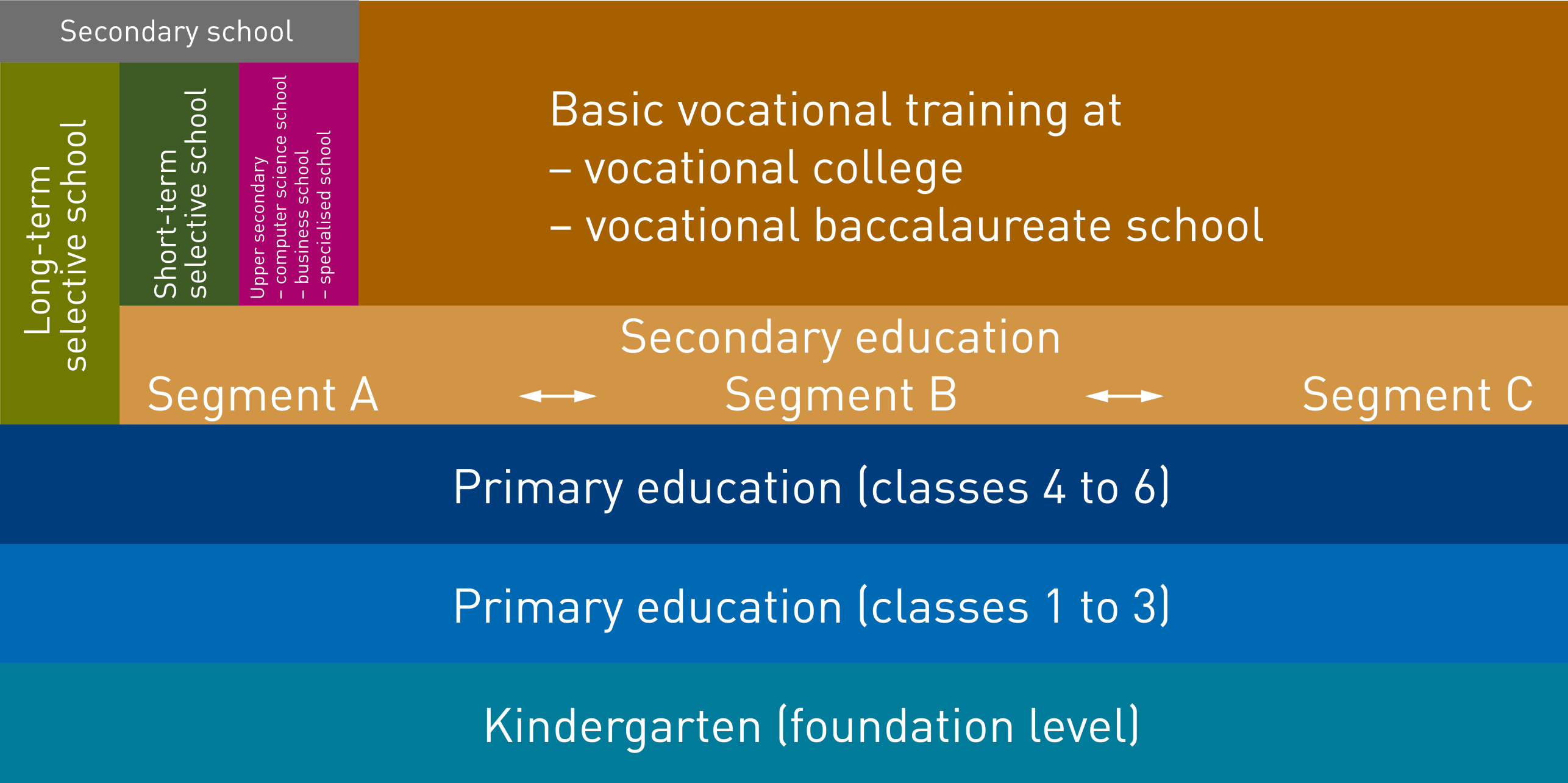Stages of school
Children aged 4 to 16 attend school. Their schooling is divided into three stages: kindergarten, primary education and secondary education.
The illustration is taken from the external page Übersichtsgraphik Schulstufen (German). The text is an abbreviated excerpt from the brochure external page Die Volksschule im Kanton Zürich (German). Both documents are issued by the external page Department of Education of the canton of Zurich – Office of Elementary Education.
The external page School and Sports Department of the City of Zurich maintains a comprehensive website with information on the subject of schools, sports and education.
Kindergarten lasts two years. It supports the child’s individual development and prepares them for school. The local vernacular (Swiss German) is spoken at kindergarten.
Some school districts have a foundation level, which is a combination of kindergarten and the first year of primary school. Every child who has turned four by 31 July must start school and will join kindergarten in August of that same year.
Further information for parents:
external page Kindergarten stage (German)
Download Your child is starting kindergarten (German)
external page Information for parents about kindergarten level
external page Primary education (German) lasts six years and is divided into lower (classes 1 to 3) and middle (classes 4 to 6) stages. The teachers, the composition of the class and, sometimes, the school building change when pupils move to the middle stage.
Primary education imparts basic reading, writing and arithmetic skills. English and French are taught as first foreign languages. The other subjects taught are music, sport, handicrafts, writing, drawing, people and the environment, religion and culture.
Academic performance and the child’s working, learning and social behaviour are assessed twice a year and recorded in the school report.
The transition to the next level is a particularly important stage. The child either moves up to the secondary level of state school or transfers to a long-term upper-secondary selective school known as a “Langzeitgymnasium”.
external page Moving from primary to secondary education (German)
external page Secondary education (German) lasts three years and is divided into two or three segments (A, B or A, B and C), segment A being the most cognitively challenging level. The school districts may establish different performance requirements for individual subjects.
At secondary level, pupils deepen and expand the knowledge they have already acquired, and learn new subjects such as biology, physics and domestic sciences.
At secondary level, pupils gain the abilities they need to undertake vocational training appropriate to their skills or switch to an upper-secondary school. Anyone interested in a career with high entry requirements can obtain a Swiss matriculation certificate (“Matura”), an academic baccalaureate, a vocational baccalaureate or a specialised baccalaureate. After obtaining this certificate, they can apply to a university or university of applied sciences.
external page Vocational education (German)
